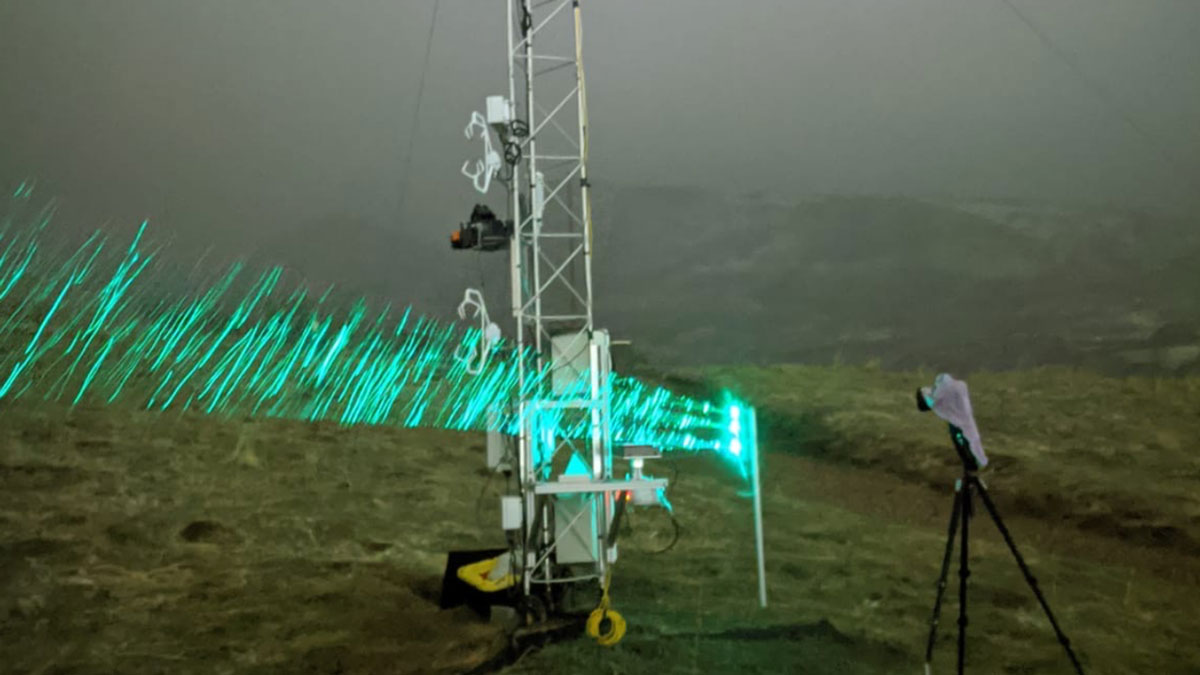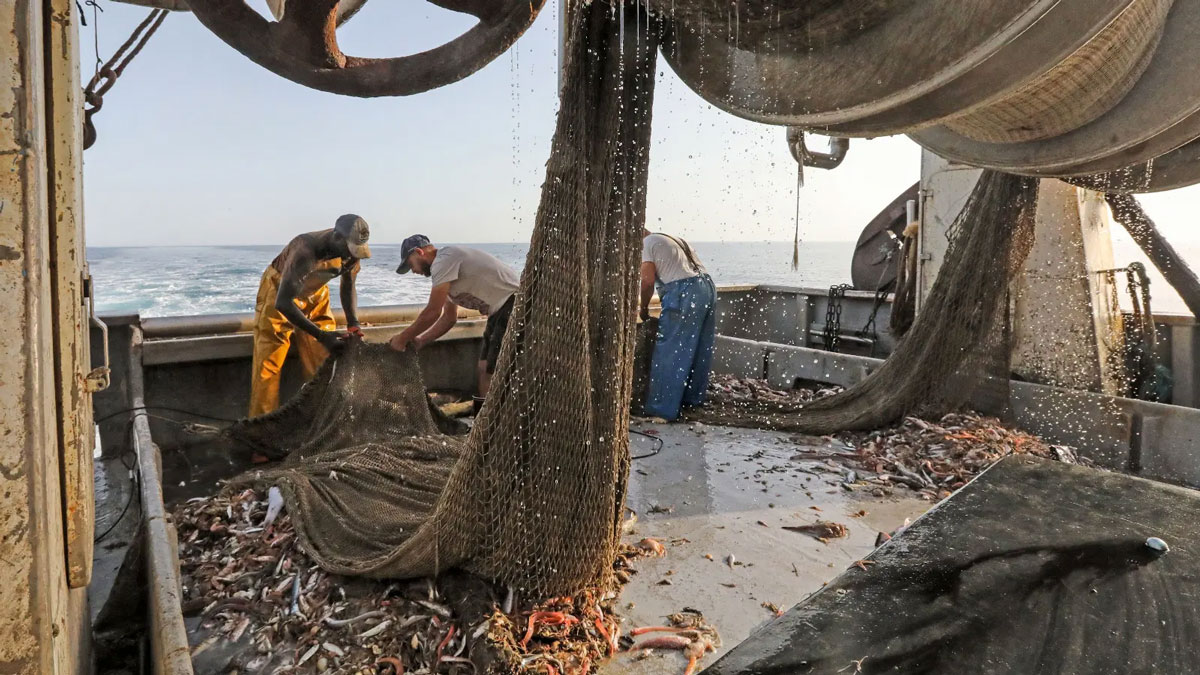Five days of low-power electricity directed to the roots of young plants boosted their growth by more than 50%.
News
Moving at the Speed of Snow
Snowflakes take many routes from cloud to ground. Large, soft flakes swirl and tumble gently from above. Sharp, painful bits of ice get spit from the sky in a sideways burst. Mushy, wet snow falls in clumps. The ways in which snow travels through the air seem nothing short of complicated. But a new study […]
Trump, Haley Tell Voters: Economic Prosperity Requires Fossil Fuels
Both Republican front-runners promise a better economy via oil and gas production.
Bottom Trawling Shreds the Seafloor. It May Also Be a Huge Source of Carbon Emissions.
Dragging nets along the ocean bed wrecks marine life, but researchers can’t agree on how bad it is for the climate.
In the Great Pacific Garbage Patch, New Marine Ecosystems Are Flourishing
Sea life, stuck to plastic bottles and other human trash, has journeyed far from coastal habitats—and may threaten local species
Magnitude 7.0 Quake Rattles Kyrgyzstan-China Border
The quake struck in the remote Tien Shan mountains.
Crafting Clean Water in the Navajo Nation
A collaboration between researchers and a Navajo Nation potter has yielded an effective and culturally appropriate water treatment device.
Japan’s SLIM Spacecraft Lands on the Moon
The mission hopes to advance space exploration using a lightweight lander and a high-precision landing system.
The Climate Crisis Briefly Crashes the New Hampshire GOP Primary
Republican candidates repeated earlier promises to expand domestic fossil fuel production and fight programs that promote race- and gender-based equity in schools.
Spring Heat Waves Pack a Punch for Snowpacks in the Pacific Northwest
New research shows how the snowpack loss due to moderate springtime heat waves outweighed that of a record-shattering summer heat dome.










